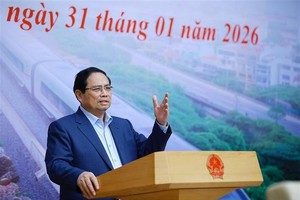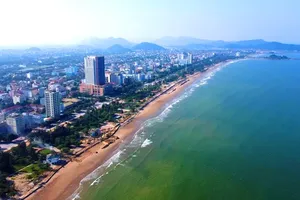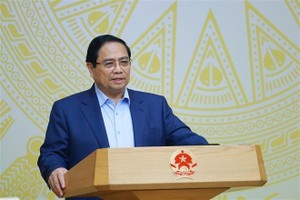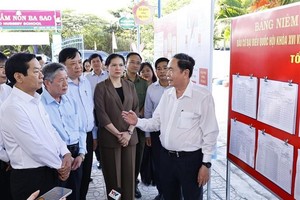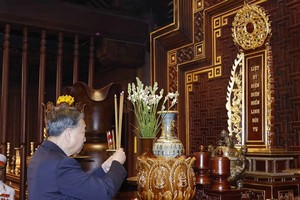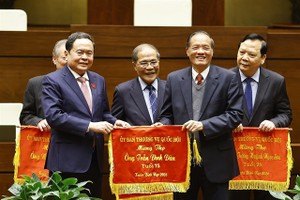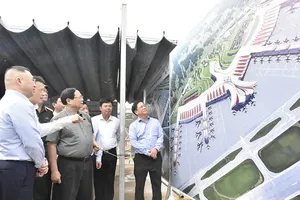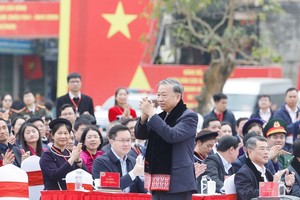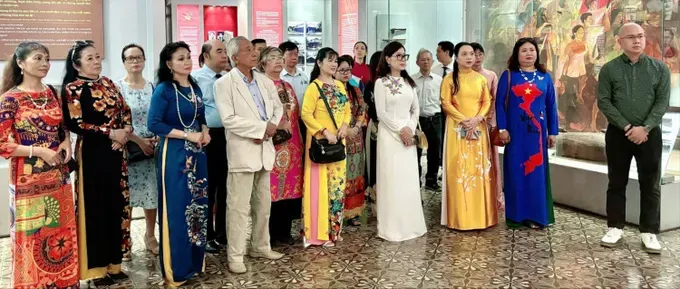
Strategic advantage for Vietnam’s breakaway
Looking back on the nearly 40-year journey of Doi Moi (Renovation), it’s clear Vietnam has entered a new phase of development. The country now holds a powerful aspiration to become a developed, high-income nation by 2045. To get there, the Party and State have identified overseas Vietnamese intellectuals as a uniquely important resource, who is, in their view, an “inseparable part” of the national development strategy.
This commitment was underscored by General Secretary To Lam, who, at the ninth plenum of the 13th Party Central Committee, emphasized that a core task for the 2025-2027 period is to attract at least 100 top-tier overseas Vietnamese experts back to the homeland, supported by a special preferential mechanism. This stance, from both the Party and State, signals a high level of political determination and a fresh, innovative approach to tapping into this global Vietnamese brain trust.
It’s a massive resource. Currently, over 600,000 Vietnamese intellectuals and experts are working in developed nations, many holding key positions in high-stakes fields like semiconductors, artificial intelligence, biotechnology, new materials, green energy, medicine, and advanced management. This is, in effect, “Vietnam’s global intellectual resource,” and it serves as a critical bridge for transferring new technology, international standards, management expertise, and cutting-edge knowledge back home.
But there’s a catch. For this resource to truly become a driving force, the country needs mechanisms that are genuinely “breakthrough” in nature. It’s time to dismantle the existing barriers – the cumbersome administrative procedures, the red tape in degree recognition, the hurdles in professional licensing – and to cultivate a working environment that is genuinely open, creative, and transparent.
To realize outlined breakthroughs in the draft documents of the 14th National Party Congress, special compensation policies must link contribution to benefits via flexible contracts and competitive salaries. It’s also necessary to introduce a robust innovation ecosystem, a national database of global Vietnamese intellectuals, and a transnational tech fund to support research and startups. Intellectual networks, meanwhile, must link tightly with embassies, turning them into hubs connecting experts with domestic institutes and businesses.
At the end of the day, if these policies are rolled out consistently, built for the long term, and truly competitive on an international scale, Vietnam will finally be able to unlock the immense potential of its global intellectual team. It will turn that global brainpower into a decisive strategic advantage for the nation’s development.
Partnering with nation’s aspiration
As overseas Vietnamese citizens, intellectuals carry more than just global knowledge but also a profound love and a deep-seated aspiration to contribute to their homeland. They are ready and willing to participate in the foundational sectors that the 14th National Party Congress draft has prioritized, such as semiconductors, AI, and biotech.
This comprises comprehensive digital transformation, meaning to build a digital government, digital economy, and digital society. And it includes developing a green industry, a circular economy, and clean energy.
At the same time, overseas intellectuals are eager to contribute to ensuring social progress, equity, and improving the quality of life for the people in their fatherland. This is the only path for Vietnam to achieve rapid, sustainable development, intrinsically linking economic growth with human development and cementing the nation’s position in the global value chain.
With this aspiration to serve, overseas Vietnamese intellectuals hope the State will enact diverse policies to attract talent, in such programs as “Overseas Experts Partnering with Institutes, Schools, and Businesses,” and the construction of innovation ecosystems where experts can both research and commercialize their findings.
This must be paired with streamlined administrative as well as legal support and, crucially, a comprehensive global database of Vietnamese intellectuals. There is a need to expand the connection model, going deeper with embassies and representative agencies so they can act as effective “bridge” in each country, linking back to the various intellectual associations and expert communities abroad.
The trust of overseas Vietnamese intellectuals in this process is only strengthened by the Party and State’s steadfast, human-centric goal: to develop the country based on science, technology, innovation, and a high-quality workforce.
The 14th Party Congress isn’t just a major political event; it’s a historic milestone. It’s poised to open an “era of Vietnamese intellect reaching the world,” a time when the strength of the entire global Vietnamese community can be gathered, amplified, and fully brought to bear.
Because no matter where they live, as children of Vietnam, these intellectuals share one singular aspiration: to walk alongside their Fatherland, contributing their minds and efforts to realize the 2045 goal of a developed, strong, and prosperous nation.

